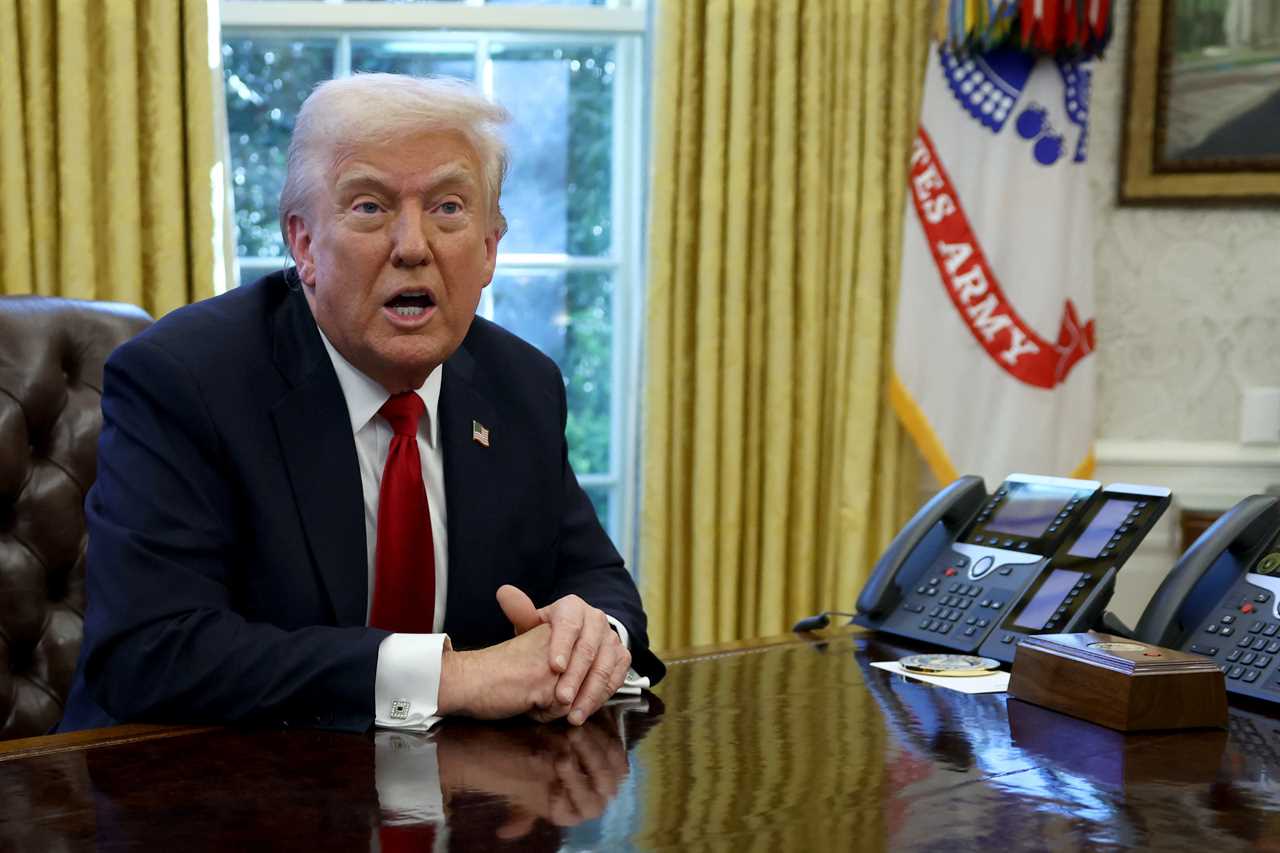
Trump's Tariff Threat: What to Expect Today
President Donald Trump is set to announce significant changes to global trade today, reminiscent of the upheavals seen during World War Two. This move is widely regarded as a major escalation in the ongoing trade tensions.
Understanding Tariffs: The Basics
A tariff is essentially a tax imposed on imported goods. It is levied on the companies that bring goods into a country and is often reflected in the final price paid by consumers. For instance, a 20% tariff on a car priced at £50,000 would result in an additional cost of £10,000.
UK's Position: Immediate Consequences
The United Kingdom stands at risk as Trump’s proposed tariffs could include a 20% levy on all foreign goods entering the US, without immediate exceptions for allies like the UK. This could lead to increased costs for British products such as automobiles from Aston Martin and Jaguar Land Rover.
Prime Minister's Strategy: Maintaining Composure
Labour leader Keir Starmer is attempting to remain composed, while the Prime Minister signals a restrained approach, avoiding immediate retaliatory measures. Efforts to build a rapport with Trump, including extending a State visit invitation, have so far not secured any exemptions from the planned tariffs.

Future Implications: Risks for the UK
Experts warn that if a suitable agreement is not reached, the UK could face a trade conflict with its largest economic partner. Such a scenario could impede growth by approximately one percent, straining an already fragile economy.
Consumers in the Crossfire: Potential Price Increases
British consumers might bear the brunt of these tariffs through higher prices on imported goods. Products like Levi’s jeans, Jack Daniel’s whiskey, and Harley-Davidson motorcycles could see significant price hikes, affecting household budgets.
Economic Outlook: Seeking Stability
British businesses are halting investments and shipments to the US amid the uncertainty, awaiting the full scope of Trump's tariffs. While the UK aims to negotiate a new economic partnership with the US, concessions—including adjustments to the UK's global tech tax—may be necessary to mitigate the impact.
Frequently Asked Questions
What are credit scores and why are they important?
Credit scores are numerical representations of an individual's creditworthiness, calculated based on credit history, payment behavior, and debt levels. They are important because they impact the ability to obtain loans, credit cards, and favorable interest rates, affecting overall financial health.
What is the importance of financial literacy?
Financial literacy is essential for making informed decisions about budgeting, saving, investing, and managing debt. It empowers individuals to understand financial concepts, evaluate risks, and navigate complex financial products, leading to better financial stability and long-term wealth building.
What is the role of central banks in the economy?
Central banks manage a nation's currency, money supply, and interest rates. They implement monetary policy to control inflation, stabilize the currency, and foster economic growth. They also serve as lenders of last resort to the banking system during financial crises.
What are the main functions of money?
The primary functions of money are as a medium of exchange, facilitating trade; a unit of account, which provides a standard measure of value; a store of value, allowing individuals to save and transfer purchasing power over time; and a standard of deferred payment, enabling credit transactions.
How can I improve my credit score?
To improve your credit score, make timely payments on all debts, reduce credit card balances, avoid opening unnecessary credit accounts, and regularly check your credit report for errors, disputing any inaccuracies. Maintaining a mix of credit types and keeping old accounts open can also be beneficial.
What are the benefits of having an emergency fund?
An emergency fund provides financial security by offering a safety net for unexpected expenses, such as medical emergencies or job loss. It helps prevent debt accumulation, reduces stress, and allows for better financial planning, ensuring that individuals can navigate unforeseen circumstances without significant hardship.
How can I budget my money effectively?
To budget effectively, start by tracking your income and expenses to understand your spending habits. Set realistic financial goals, categorize your expenses, and allocate funds accordingly. Regularly review and adjust your budget to ensure it reflects your current financial situation and objectives.
Statistics
- According to the Bureau of Labor Statistics, the average American spends about $1,500 per year on coffee.
- A survey by the American Psychological Association found that 72% of Americans reported feeling stressed about money at some point in the past month.
- The average return on investment for the S&P 500 over the past 90 years is about 10% per annum.
- The average cost of raising a child in the U.S. is estimated to be around $233,610, according to the U.S. Department of Agriculture.
- According to the Federal Reserve, approximately 39% of Americans do not have enough savings to cover a $400 emergency expense.
- According to a survey by the Financial Industry Regulatory Authority (FINRA), about 66% of Americans could not correctly answer four basic financial literacy questions.
- As of 2021, the average student loan debt for recent graduates was approximately $30,000, according to the Federal Reserve.
- A report by Bankrate indicated that only 29% of Americans have a written financial plan.
External Links
How To
How To Improve Your Credit Score
Improving your credit score is a gradual process that requires consistent effort. Start by obtaining a copy of your credit report from the major credit bureaus to identify any inaccuracies or negative entries. Pay your bills on time, as payment history accounts for a significant portion of your credit score. Reduce your credit card balances to maintain a low credit utilization ratio, ideally below 30%. Avoid opening new credit accounts frequently, as this can negatively impact your score. Lastly, consider becoming an authorized user on a responsible person's credit card to benefit from their good credit habits. Regularly monitor your credit report to track your progress.
 PoliticsRoyaltySoap OperaGamingMoneyPrivacy PolicyTerms And Conditions
PoliticsRoyaltySoap OperaGamingMoneyPrivacy PolicyTerms And Conditions
